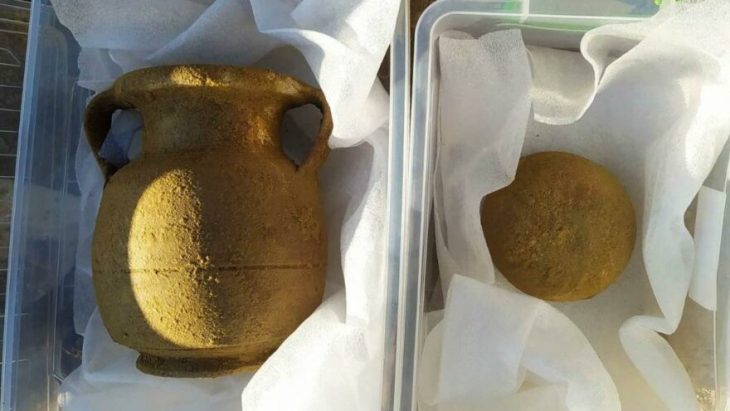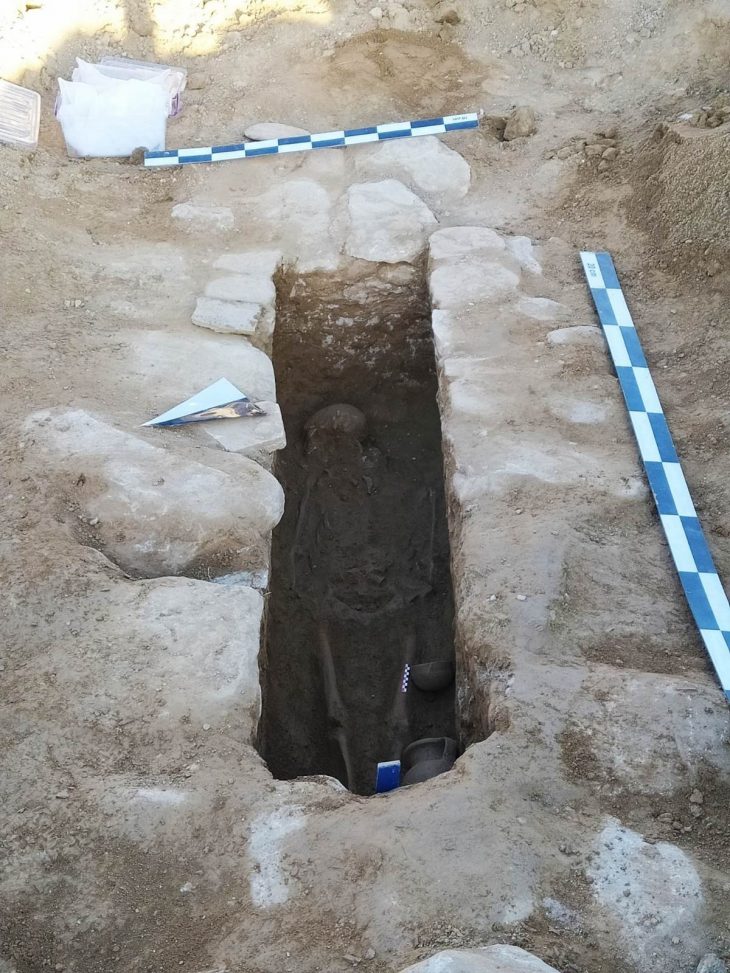An unexpected discovery in a field near Akçakoca, Turkey, has revealed a hidden piece of history. While plowing his land, a farmer named E. G. snagged his tractor on what he believed to be a large rock. Upon closer inspection, he realized it might be something more significant and alerted the authorities.
Officials arriving at the scene in Gölmarmara district, Manisa province, confirmed his suspicion. The unearthed object turned out to be a 2,000-year-old sarcophagus dating back to the Hellenistic period.
News of the discovery, reported by Sözcü Newspaper, details the intriguing events that unfolded. As E. G. worked his field with a tractor, the implement became entangled with a substantial rock fragment. Fearing it could be a buried tomb, he contacted the local gendarmerie command.
Responding swiftly, the gendarmerie dispatched two officers to secure the area. They also notified the Manisa Museum Directorate, recognizing the potential historical significance of the find.

Museum teams promptly arrived and began excavation. Inside the sarcophagus, they discovered a skeleton alongside two earthenware vessels and four curious yellow, amorphous objects.
Following careful excavation, the skeletal remains were returned to the tomb. The museum took custody of the clay pots and the enigmatic yellow objects for further analysis and preservation. With all necessary checks completed, the excavation site was meticulously restored.

A Glimpse into the Hellenistic Period
The unearthed sarcophagus offers a window into the Hellenistic period, a historical era heavily influenced by Greek culture. This period, lasting roughly from 323 BC (the death of Alexander the Great) to 146 BC (Roman conquest of the Greek peninsula), witnessed the spread of Greek art, religion, and architecture across vast swathes of territory.
Some historians consider the Hellenistic period to be a decline from the pinnacle of Classical Greek Civilization. Others view it as a bridge connecting the classical Greek world with the rise of the Roman Empire. Regardless of interpretation, the discovery in Manisa serves as a tangible reminder of this significant period in history.
The farmer’s accidental discovery not only provides a glimpse into the past but also highlights the importance of public awareness regarding historical artifacts. E. G.’s responsible actions ensured proper investigation and preservation of this valuable piece of history.
